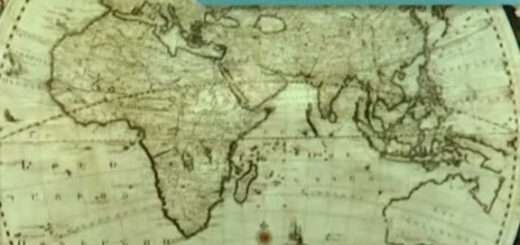Bought Narratives and Manufactured Truths How powerful states and corrupt think tanks rewrite reality, and how the Truth and Accountability League is confronting the global disinformation war

By Vic Gerami
In the 21st century, war is not only fought on land, sea, or air. It is also fought on your screen, in your feed, across social networks, search engines, and messaging apps. One major battlefield is narrative control, where governments and institutions compete to shape what people believe, what they doubt, and what they dismiss.
The Global Playbook
Covert influence operations are now standard practice. Countries including Israel, Azerbaijan, Türkiye, China, the United Kingdom, and the United States each use, or have been reported to use, tactics such as fake accounts, coordinated campaigns, pseudo-news sites, and narrative seeding on social media to win hearts and minds both at home and abroad.
Israel has reportedly deployed covert social media operations to influence U.S. audiences and lawmakers during times of conflict. More recently, Israel and its allies used the U.S. political system, along with powerful business relationships, to exert influence leading to the forced sale of TikTok’s U.S. Azerbaijan has been linked to multiple coordinated networks promoting favorable narratives and suppressing dissent around the Artsakh Genocide. Türkiye’s new disinformation laws and platform mandates deepen state control over what is considered “untrue information,” turning narrative control into a legal tool. China combines domestic censorship, overseas influence operations, and algorithmic manipulation on global platforms to shape its image and counter criticism. The United Kingdom and United States face growing pressure to regulate large platforms, raising questions about how far governments should go in determining what social media allows, particularly regarding misinformation or “harmful” content.
Regulatory and Platform Control
Beyond covert operations, the next frontier is regulation. By rewriting platform obligations and laws that require takedowns, grant “trusted flagger” status, or impose content-moderation duties, states gain leverage over information flows. In Türkiye, the law criminalizing “untrue” information allows authorities to jail media figures or pressure platforms into compliance. In the U.K., the Online Safety Act introduces broad new duties for platforms, while in the U.S., court battles continue over how government communication with social-media companies should operate.
Think Tanks and the Narrative Supply Chain
One of the most overlooked elements of the information war is the role of think tanks and policy institutes. These organizations often provide the intellectual foundation for media narratives, shaping the stories and frameworks that dominate public debate. Yet many think tanks are far from independent.
A 2020 study found that authoritarian regimes use think tanks as “platforms for influence” by funding them, leveraging their credibility, and projecting soft power through supposedly neutral research. Some think tanks accept money from authoritarian or corrupt governments, publish reports that reflect donor interests, and gain “trusted partner” status with major platforms that rely on them for moderation advice.
The result is a system where rogue governments can essentially buy access to the global narrative marketplace. By funding think tanks or advocacy groups in Washington, London, and Brussels, they influence how media outlets and policymakers view them. They also gain quiet veto power over what information is labeled “disinformation” or suppressed online.
This is not theoretical. There have been well-documented cases of governments with poor human-rights records paying hundreds of thousands of dollars to join Western think-tank networks or sponsor their events, giving them credibility while shielding them from criticism. This practice, sometimes called “intellectual capture,” allows authoritarian regimes to launder their reputations through respected institutions.
Armenia as a Victim of the Information War
Armenia provides a vivid example of how smaller nations can become targets in the global information war. The country has faced relentless disinformation campaigns from neighboring Azerbaijan and its allies, particularly around the Artsakh Genocide (2020-2023).
Propaganda networks have sought to portray Armenia as an aggressor, distort events on the ground, and erase humanitarian crises in Artsakh. Coordinated social-media operations have spread false narratives, sometimes amplified by international media or lobbyists connected to foreign interests. These efforts aim to undermine Armenia’s credibility, weaken its alliances, and demoralize its population.
At the same time, Armenia’s own media and government institutions have struggled to counter such campaigns effectively. Limited resources, fragmented communication strategies, and lack of international media reach have made it difficult for Armenian voices to break through.
To defend itself, Armenia needs to invest in strategic communications, digital literacy, and narrative resilience. This means training journalists, developing rapid-response teams to combat disinformation, and collaborating with credible allies who value truth and transparency. It also means holding international think tanks and media accountable when they take money from regimes that propagate hate or rewrite history.
Why This Fight Matters
When citizens lose trust in information, they stop believing anything at all. That vacuum becomes the breeding ground for propaganda, manipulation, and apathy. States, platforms, and institutions that claim to “fight misinformation” often end up reinforcing their own power, suppressing dissent, and amplifying favored narratives.
Smaller nations like Armenia are particularly vulnerable. Without robust media infrastructure, strong public diplomacy, and transparent allies, they risk being erased in a global contest dominated by better-funded propaganda machines.
Conclusion
The information war is not just about fake news or algorithms. It is about who gets to define reality. Governments, think tanks, and corporations are all competing to control the narrative. Those who fund misinformation and those who silence truth are often the same players, working different sides of the same system.
For countries like Armenia, fighting back means more than correcting lies. It means building resilience, telling their own story with clarity and confidence, and refusing to let money or power dictate the truth.
Through the Truth and Accountability League (TAAL), Armenians have an organized and principled force on the frontlines of the information war. TAAL confronts propaganda, disinformation, and bias targeting Armenia and Armenians through investigative research, media monitoring, strategic communications, and public education. The organization exposes false narratives that distort Armenia’s image, documents anti-Armenian hate and Armenophobia, and challenges deceptive reporting in media, academia, and policy circles. TAAL builds partnerships with journalists, civic institutions, and human-rights advocates to ensure facts prevail over fabrications. By combining advocacy, training, and narrative defense, TAAL empowers communities to identify and counter propaganda with truth and evidence. In doing so, it gives Armenians the tools to reclaim their story and ensures that the truth about Armenia, Artsakh, and the Armenian people cannot be erased, bought, or silenced.





